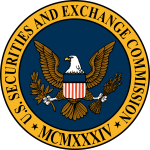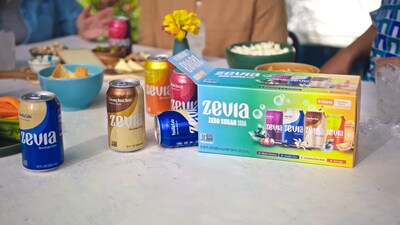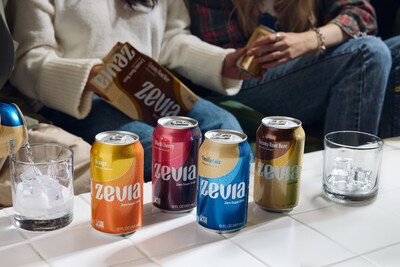 sapote
3 años hace
sapote
3 años hace
Zevia: What To Know Before The IPO $ZVIA
Jul. 19, 2021 12:29 AM ET
https://seekingalpha.com/article/4439817-zevia-what-to-know-before-the-ipo
Summary
First, I explain Zevia as an emerging growth company.
Second, I show Zevia's primary business focus.
Third, I talk about their ESG priorities.
Fourth, I reveal two weak points in the business.
Fifth, I explore Zevia's relevant financials.
I'm a huge fan of Zevia (ZVIA) as a customer. Here's what they do:
Zevia is a high-growth beverage company that is disrupting the liquid refreshment beverage industry through delicious and refreshing, zero calorie, zero sugar, naturally sweetened beverages that are all Non-GMO Project Verified. We are a pioneering beverage brand, offering a platform of products that include a broad variety of flavors across Soda, Energy Drinks, Organic Tea, Mixers, Kidz drinks, and Sparkling Water. All of our beverages are made with only a handful of plant-based ingredients that most consumers can easily pronounce.
I drink probably 12-15 cans of the stuff every week. My favorite sodas are ginger root beer, creamy root beer, cream soda and cherry cola. I'm extremely loyal to the brand and products because they are truly outstanding to my palate. They use stevia instead of sugar, and there are no artificial sweeteners or colors added. But wait, I'm getting ahead of myself.
The purpose of this article is to give you an overview of ZVIA with a smattering of relevant details about the business. First, I explain ZVIA as an emerging growth company. Second, I show ZVIA's primary focus. Third, I talk about their ESG priorities. Fourth, I reveal two weak points in the business. Fourth, I explore ZVIA's relevant financials. Lastly, I discuss my simple investment plan.
Zevia Is An Emerging Growth Company
That's not just based on facts or opinion. It's also a specific type of growth business based on an important definition:
[...]
 sapote
3 años hace
sapote
3 años hace
Zevia IPO: 5 things to know about the zero-calorie beverage company before it goes public
https://www.marketwatch.com/story/zevia-ipo-5-things-to-know-about-the-zero-calorie-beverage-company-before-it-goes-public-11625592545
Last Updated: July 22, 2021 at 8:26 a.m. ET
First Published: July 6, 2021 at 1:29 p.m. ET
By Tonya Garcia
Zevia says it was the top-selling carbonated soft drink brand on Amazon in 2020.
Zevia PBC, a beverage company that makes zero-calorie and zero-sugar beverages with “clean” ingredients, has filed to go public.
The Encino, Calif.-based company plans to list class A shares on the New York Stock Exchange under the ticker “ZVIA.” $ZVIA
Zevia’s initial public offering has priced at $14, the midpoint of the $13 to $15 range. The company cut the size of the deal to 10.7 million shares from previous plan to offer 14.3 million shares. That would will raise $149.8 million, which the company will use for working capital and other general corporate purposes.
Goldman Sachs & Co. LLC, BofA Securities and Morgan Stanley are the lead underwriters in a syndicate of six banks.
Once the deal closes, Zevia, which started as a Public Benefit Corporation, will reorganize into a holding company through a UP-C process that will provide tax advantages to existing members of the business. Full-time employees have an interest in the company.
“At Zevia, every full-time team member has an equity interest in the company, receives robust pay and benefits, and is a key stakeholder in our mission,” Spence said in his CEO letter.
Zevia is classified as an emerging growth company, which means it does not have to make the same disclosures required of bigger public companies. A business remains an emerging growth company until it reaches a number of milestones, including annual revenue of more than $1.07 billion.
Founded in 2007, Zevia makes soda, energy drinks, teas, drinks for kids, mixers like tonic water and ginger beer, and sparkling water that are distributed across the U.S. and Canada.
“All of our beverages are made with only a handful of plant-based ingredients that most consumers can easily pronounce,” the company said in its prospectus.
Cola accounted for 24% of the company’s sales in 2020. Cola competitors include Coca-Cola Co. KO, +1.29% and PepsiCo Inc. PEP, -0.37%, two of the biggest brands in the world.
Zevia presents data from Statista and Beverage Digest showing that per-capita consumption of conventional carbonated soda has dropped to 38.6 gallons in 2019 from 45.5 gallons in 2010.
On the other hand, the health and wellness beverage category reached $301 billion in retail sales in 2020 and will grow at a CAGR of 2.8% from 2019 to 2025, according to Euromonitor data.
Zevia estimates that it has 88% market share of zero-calorie, naturally-sweetened soft drinks in 2020. Zevia has six product lines and 37 flavors.
Zevia estimates the global liquid refreshment beverages market is worth $771 billion.
Moreover, Zevia beverages are suitable for those with a variety of dietary regimens including kosher, vegan and gluten-free.
Paddy Spence has served as Zevia’s chief executive since March 2021. Previously he was CEO and a director on the Zevia board while it operated as an LLC. He acquired the company in September 2010. He also founded SPINS, a market research firm for the natural products industry, and was its CEO from 1995 to 2003.
Hank Margolis will be chief operating officer once Zevia is public, and Bill Beech will be chief financial officer. Both have served in these respective roles for Zevia prior to the IPO.
Zevia puts its environmental, social and corporate governance (ESG) efforts out front, highlighting its partnerships with dietitians and nutrition educators to provide educational materials about the impact of consuming sugary drinks, which has been tied to health problems like obesity, diabetes and other diseases.
Spence began keeping a food journal in 2001 and discovered how much sugar he was consuming despite his diet of natural and organic foods and beverages. He and his wife decided to eliminate sugar from their diets.
“Today, we still use a ‘sugar budget’ to manage our sugar intake at home,” Spence wrote in the CEO letter included in the prospectus.
Spence says there are “barriers” to others that preclude them from making healthier diet choices.
“So at Zevia, we are proud that we offer beverages that are accessible to consumers across a broad range of income levels,” he said.
Zevia has also taken steps to eliminate waste and set standards for transparency.
“We have never sold a single plastic bottle, which we estimate has eliminated 15,000 metric tons of plastic bottles from the supply chain by selling only aluminum packaging since 2011,” the company said. “In addition, one of our main ingredients, stevia, requires less agricultural water resources than sugar, furthering our sustainability mission.”
Here are five more things to know about Zevia before it goes public:
Zevia is loss-making but revenue is growing fast
Zevia eked out a profit of $19,000 in the first quarter of 2021, after a loss of $2.6 million in the year-earlier period, but the company acknowledges it is effectively not yet profitable.
“We have a history of losses, and we may be unable to achieve profitability,” it says in its IPO documents.
Losses in 2020 were $6.1 million, wider than the loss of $5.4 million posted in 2019. As a result, it is not planning to pay a dividend any time soon, meaning investors will have to rely on share price appreciation for returns.
Sales, on the other hand, are on a growth trajectory, climbing to $110 million in 2020, or nearly 240 million cans, from $7 million in 2010, a 32% compound annual growth rate (CAGR). Zero-calorie beverages with plant-based sweeteners were a $150.6 million business in the U.S. in 2020, up from $90.8 million in 2018.
E-commerce represented 13% of 2020 sales. Data furnished by retail intelligence platform Stackline shows Zevia was the top-selling carbonated soft drink brand on Amazon.com Inc. AMZN, +0.34% in 2020.
Sales in 2019 were $85.6 million.
Zevia has an ‘asset-light’ business model
Zevia doesn’t make its own products, but rather uses third-party manufacturing and logistics providers, which the company says “is designed to leverage reduced costs and overhead, with capital expenditures of less than 1% of net sales in each of the last two years.”
The benefit is the ability to focus on initiatives across ESG, sales and marketing while also providing financial flexibility, according to the company.
Concerns that stevia is unsafe have emerged in the past — and could rise again
Zevia’s marketing has included a focus on the company’s use of stevia and other plant-based sweeteners in their products. Questions about the safety or quality of these ingredients could hurt Zevia.
“For example, in the past there have been unfounded and scientifically refuted claims that stevia may cause reproductive issues or require allergy warnings,” the prospectus said. “Future similar founded or unfounded claims could cause customers or consumers to reduce the number of our products that they purchase or stop buying our products altogether.”
Zevia has some supply-chain risk
Zevia only has one stevia extract supplier, which it highlights as a supply-chain risk in its prospectus.
“Events that adversely affect our supplier of stevia extract and other raw materials could impair our ability to obtain raw material inventory in the quantities that we desire,” the company said.
“We have in the past experienced interruptions in the supply of carbon dioxide and caffeine. While those disruptions did not have a material impact, future disruptions could have a material negative impact on our business operations.”
The company says it’s looking for alternative stevia extract suppliers.
Climate change could become a problem
Zevia relies on agricultural products, like plant-based sweeteners, that could be impacted by changing weather patterns and other effects of climate change.
“As a result of climate change, we may also be subjected to decreased availability of water, deteriorated quality of water or less favorable pricing for water, which could adversely impact our third-party contract manufacturers’ operations, as well as the agricultural businesses of our suppliers, which rely on the availability and quality of water,” the prospectus said.


 Hot Features
Hot Features






